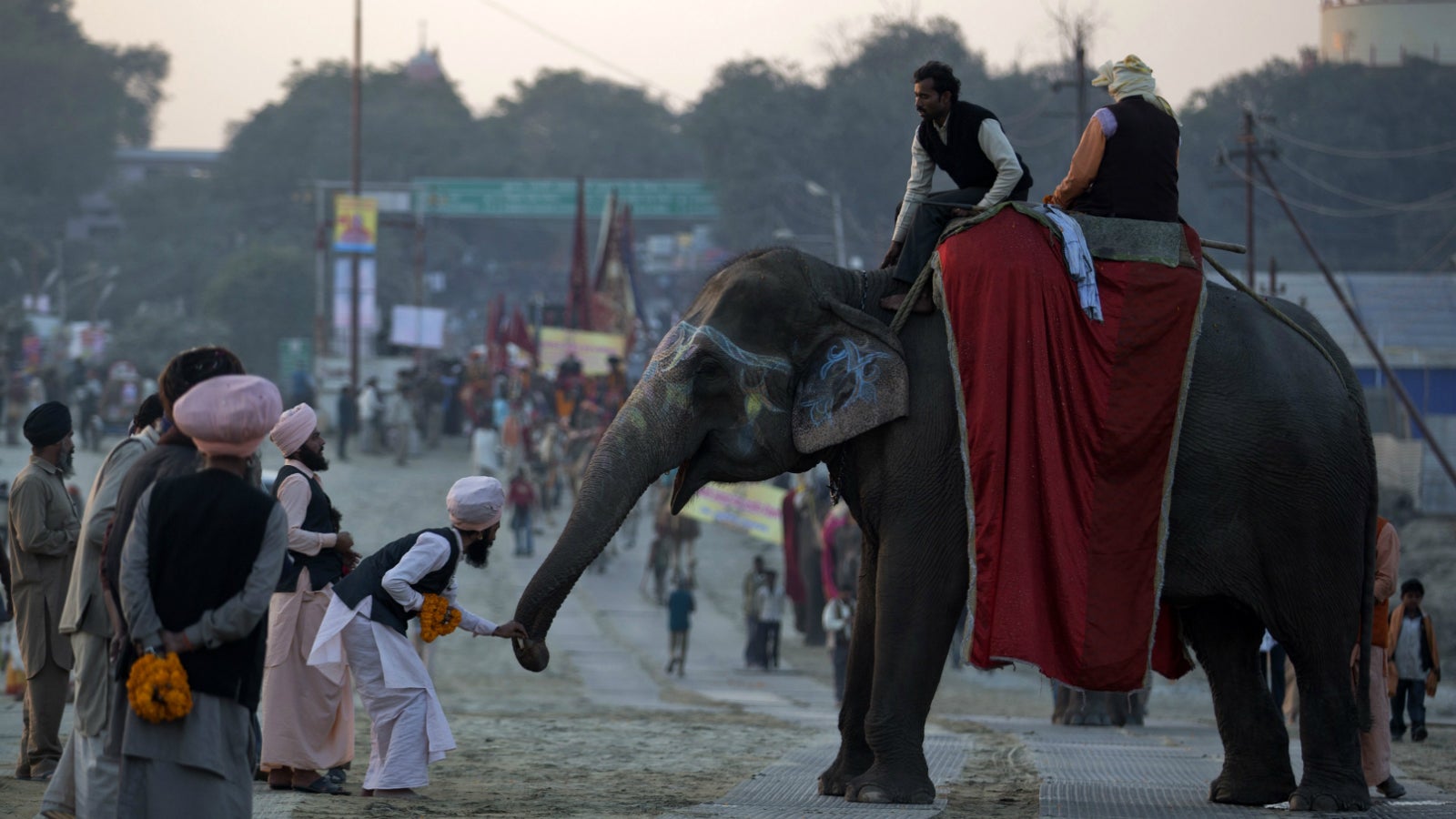How millions of Indians on the internet can fix everything from the dirty Ganga to India Inc.
What is crowdsourcing and why does it matter to India?


What is crowdsourcing and why does it matter to India?
Simply put, crowdsourcing is the practice of tapping into the minds, resources or finances of many, connected via a common goal or purpose.
Collaboration, of course, is probably as old as the human race. What is new is how the power of the internet has enabled and amplified many of these collaborations to create a force for good.
Consider these numbers:
- Nearly 20% of the country’s population is on the internet, and that 20% is a sizeable chunk of nearly 250 million.
- 65% of its 1.27 billion people are below the age of 35, amounting to 825 million millennials.
- 70% of online youth in India spend more than five hours on the internet every week.
What I see above here is social productivity waiting to be harnessed. With organisations like Internet.org and DEF working to overcome the digital divide in under-served communities, more Indians are getting online.
So, can the five hours spent on the internet be used to do more than just like, share or tweet? Can resources be tapped to secure a brighter economic future—such as collaborating on ideas to clean the Ganga, or building a safety mechanism for women?
India is already tapping into the power of networked crowds, and this is just the beginning.
Global workforce
Indians are thriving in the un-collared freelance workforce on sites like Elance-oDesk and Freelancer, which are levelling the playing field for those seeking global opportunities. In 2013, India was ranked second in the Elance-oDesk online employment report.
Freelancer reports that 74% of its freelancers are millennials (between 18 and 34 years)—yet another statistic that bodes well for the country.
Civic crowdsourcing
The rupee symbol was the product of an open design competition—a great example of letting citizens take the lead. The Clean Ganga initiative is also another powerful way to empower citizens to make a difference. Crowdsourced traffic data is helping traffic police in the cities of Pune, Chennai, and Delhi collaborate with the crowd, who report on traffic violators through social media. An open dialogue with citizens is the way forward and the diversity of the Indian population can be a catalyst to bring a myriad of solutions forward.
India’s most prominent civic crowdsourcing initiative comes from the Modi Government that has recently launched a revamped version of the MyGov.in website, seeking a robust communication link between citizens and policy makers. The website promises to be more collaborative with ministries being able to access public opinion on policies through opinion polls and surveys.
Homegrown solutions
XPRIZE, a US-based non-profit that crowdsources ideas and solutions through grand challenges with large prize money, recently launched in India to accelerate innovation in healthcare, energy, education, technological advancements and poverty alleviation.
Crowdsourcing models don’t always have to be hi-tech. The Honey Bee Network has a mission to nurture creativity, innovation, and cross-pollination of grass-roots knowledge in rural communities that are knowledge-rich yet economically poor. They can take an active part in their own development.
Yes to communities
Crowdfunding, the practice of acquiring capital or funds via many contributions, has ballooned to $5 billion in 2014 worldwide.
Indian crowdfunding platforms like Catapooolt are growing slowly with a 25% overall success rate, but the Indian market regulator’s proposal to regulate these crowdfunding platforms is an indication of a nascent collaborative economy being noticed by the top financial regulatory entity.
Crowd-based finance models have also emerged as peer-to-peer lending, where Faircent has created a sweet spot, offering cheaper loans to borrowers and better returns to lenders than conventional banks. It does all of these through secured community loans.
Startups rebooted
Crowds can not only provide financial means to entrepreneurs, but the new collaborative economy has opened a slew of business models on principles of networked crowds.
San Francisco- and Chandigarh-based Click Labs, is looking to establish the sharing economy in India offering on-demand services, curation and marketplace models.
Become famous
TalentHouse India connects big-name brands to artists for collaboration on creative crowdsourcing projects. The platform not only showcases talent, but also provides them with much needed recognition. In 2013, TalentHouse helped crowdsource ‘My Nation, My Anthem,’ to commemorate India’s Republic Day.
And there is more…
From a business perspective, companies such as Airtel, Tanishq and Micromax have strategically tapped into co-creation and open innovation for ideas, opinion and feedback. Micromax was able to create a social media buzz among millennials when it sought a logo-redesign through a creative contest. The Toyota Green Journey was an open ideation competition to educate Indian youth on hybrid technology while seeking ideas on environmental sustainability. Tanishq co-created designs for its Mia line of jewellery with a call for designs from talented jewellery designers.
But crowdsourcing hardly works in isolation. It requires hard work to engage communities. So, its potential is limited when applied in an ad-hoc fashion. A mindset has to be built from the ground up.
Despite these very positive initiatives, crowd collaboration is still in its infancy in India—and by extension in Asia, too.
And a widespread adoption of the West’s seemingly efficient practices is not the solution. Crowd innovation is rooted in society and culture—and rather than forcing cookie-cutter approaches, Indian innovators and decision makers (especially in civic bodies and government) should think about sowing the seeds of civic co-operation, water the movement and let the crowds evolve.
The opportunities are infinite. My bet is on the people.
We welcome your ideas at [email protected].